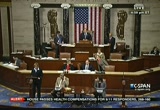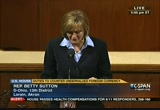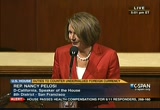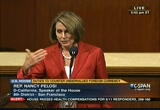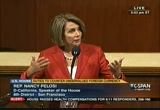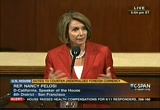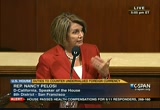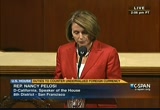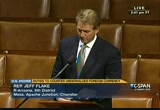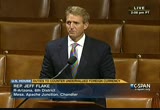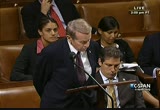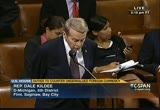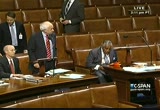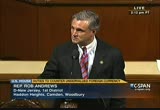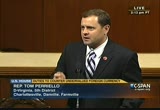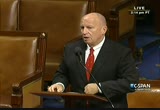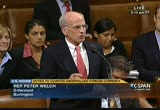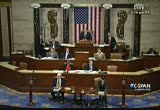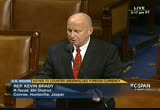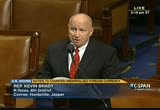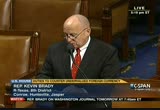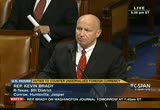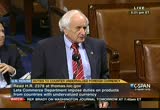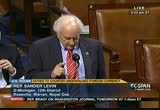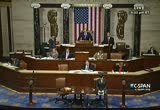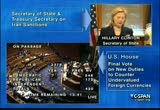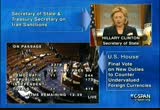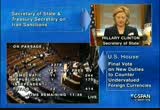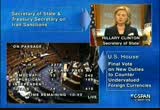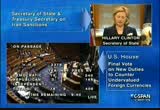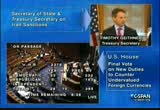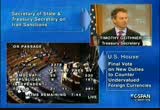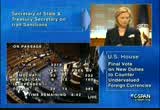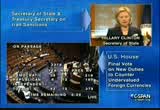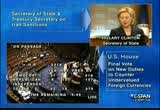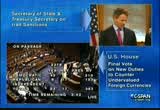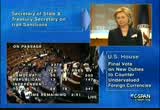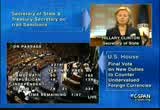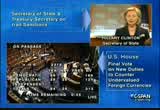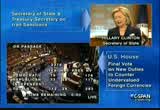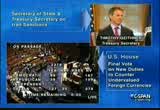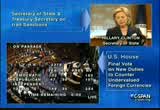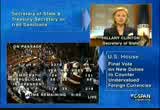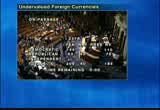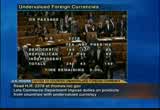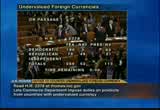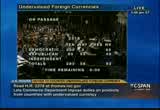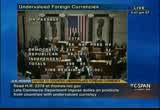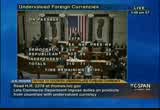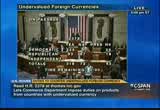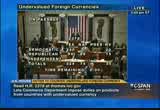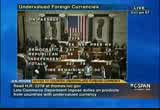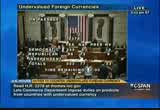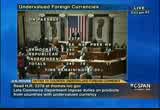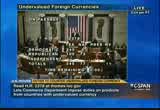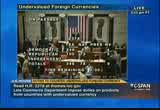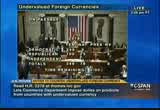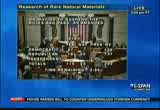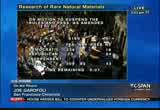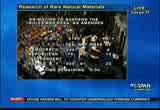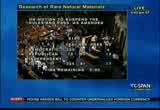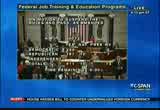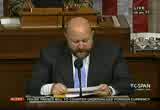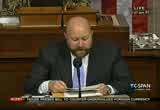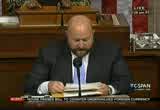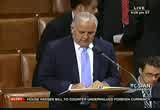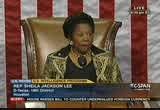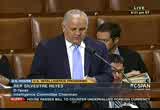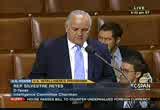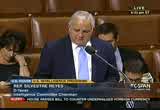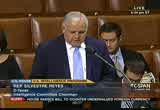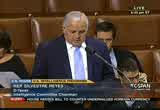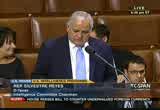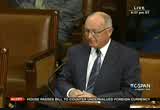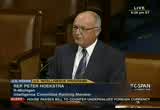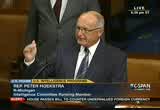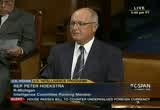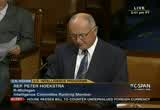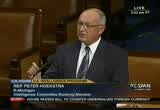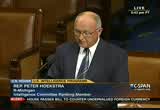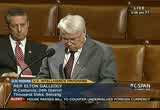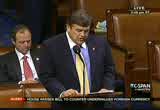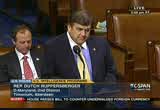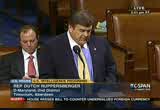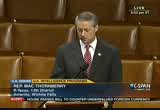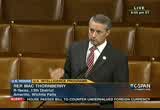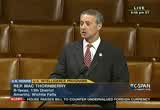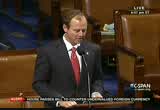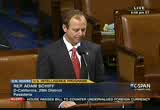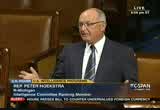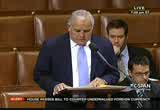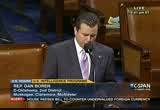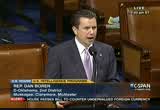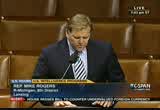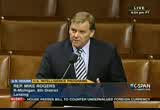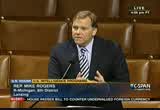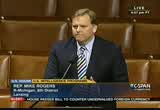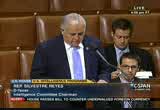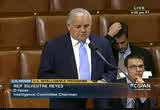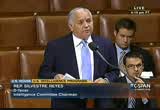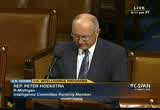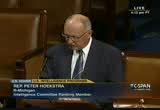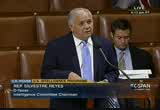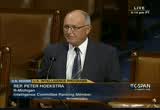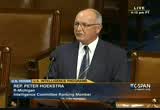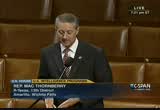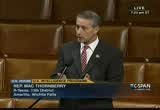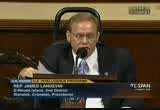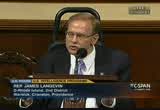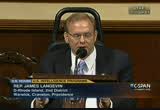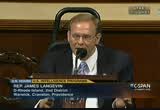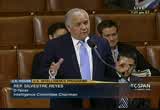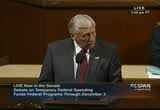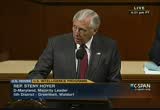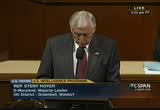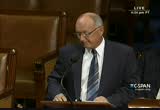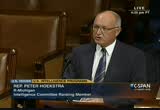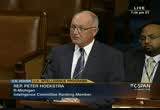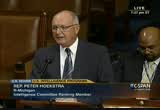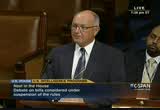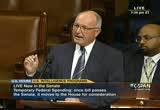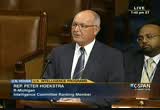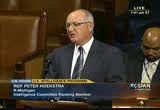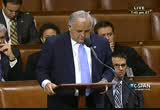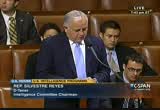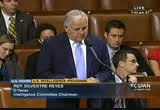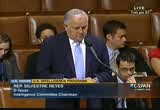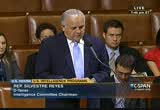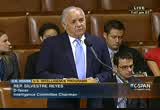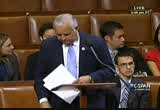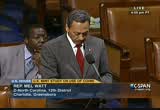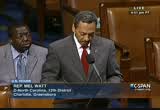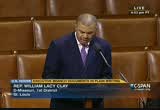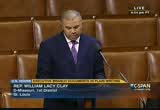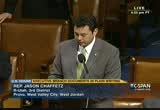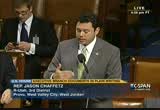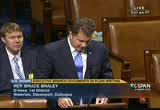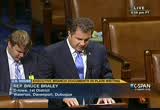tv U.S. House of Representatives CSPAN September 29, 2010 5:00pm-8:00pm EDT
5:00 pm
ms. sutton. the speaker pro tempore: the gentlewoman is recognized. ms. sutton: this has cost american workers jobs. we've heard the numbers. 2.4 million jobs lost across the country. 92,000 jobs lost in ohio. and 5,700 jobs have been lost in my congressional district due to china's deliberate and abusive trade policies, policies like their blatant currency manipulation that violates their obligations to international trading. today, we say we've had enough. today, we stand with american workers and american small businesses. we send a clear message that american workers and businesses will compete with chinese workers and businesses. . working families around the
5:01 pm
country will see and feel the results of china's misaligned currency. we must stand against it. they see plans closing. they see friends and loved ones losing their jobs. and today, mr. chairman, they are seeing us stand up for the american manufacturing and american workers and demand a level playing field and an end to china's currency manipulation. i yield back. the speaker pro tempore: the gentlewoman yields back. the gentleman from texas. mr. brady: i reserve. the speaker pro tempore: the gentleman reserves. the gentleman from michigan. mr. levin: mr. speaker, it's now my pleasure, a deep privilege to yield a minute to our distinguished speaker, nancy pelosi. the speaker pro tempore: the gentlewoman is recognized. the speaker: thank you, mr. speaker. i thank you for the recognition and of yielding of time from the distinguished chairman of the ways and means committee. w and means committee. i think him for bringing this legislation to the floor and i
5:02 pm
thank mr. murphy -- bipartisan murphys for their leadership in this important legislation. mr. speaker, for so many years, we have watched china-u.s. trade deficit grow and grow and grow. and today, we are finally doing something about it by recognizing that china's manipulation of the currency represents a subsidy for chinese -- exports coming to the united states and elsewhere. many of us have been working on this issue for decades. 20 years ago, when the issue of china trade was before the floor of the house, the trade deficit was $5 billion a year. u.s.-china trade deficit was $5 billion a year. we thought that gave us tremendous leverage for them to stop violating our intellectual property, to give us market
5:03 pm
access, to stop nontariff barriers to our products going into china and the rest. we had issues with china's proliferation of weapons of mass destruction and strictly on the subject of trade, the imbalance was $5 billion, which seemed like an enormous amount of money. we tried through legislation unsuccessfully on the floor under both democratic and republican presidents, this is not a partisan thing and because of the objection of the administration, were not able to pass any legislation that said, halt. we understand the u.s.-china relationship is an important one in every way, culturally, politically, diplomatically, economically, commercially, but we need to have play by the
5:04 pm
rules. when china came into the w.t.o. it was projected that they would play by the rules. but here we are today and remember i said, the trade deficit was $5 billion a year, 20 years ago when we were having this debate then. it is now $5 billion a week, a week. one way that we can address that is to address the issue of china's manipulation of the currency, which as i mentioned is a subsidy for their exports. we believe by passing this legislation will give the president leverage in his conversations with the chinese about how seriously and closely the american people are watching this situation. it is part of our make it in america agenda to stop the erosion of our manufacturing,
5:05 pm
industrial and technological base. we have to stop that. it's an economic issue. it's a national security issue that we have the manufacturing capacity to protect the american people in every way. so, this is about america's workers. it's about making it in america so that our people can make it in america for their families, for their communities, for our country, for our economy. especially now when we're talking about all the new green technologies and the rest, which are part of the green clean energy jobs for the future, and we see what is happening in our trade relationship with china on that score. it is absolutely essential as we prepare -- well, we are into that future, but as we go farther into the future, that we do not have unfair subsidies of chinese exports into the united states in the important competitive arena of innovation
5:06 pm
and new green technology. with this bipartisan -- again, i commend representative tim murphy and representative tim ryan -- i said two murphys. he's irish, what can i tell you -- two tims as part of this bipartisan legislation, we make it clear that -- if china wants a strong trading relationship with the united states, it must play by the rules. we owe that to american workers. it is our hope by passing this legislation again -- i say again, the obama administration and future administrations, greater leverage in the bilateral and multilateral negotiations with the chinese government. we do this because one million american jobs could be created if the chinese government took its thumb off the scale and allowed its currency to respond to market forces.
5:07 pm
the bipartisan ryan-murphy currency reform for fair trade act marks a positive step in the fairness for our workers, opportunities for our manufacturers and growth for our economic prosperity. i urge our colleagues to vote aye and i yield back. the speaker pro tempore: the gentleman from texas. mr. brady: i yield two minutes to the the gentleman from arizona who is focused on jobs and getting this economy back on track as well as limiting the size of these dangerous dwebts and deficits, mr. flake. the speaker pro tempore: the gentleman is recognized. mr. flake: i rise in opposition to this bill. there is no denying that there are issues related to chinese currency valuation. unfortunately, the passage of this bill will do little to address those concerns. instead approval of this bill will result in actions on the part of the chinese. a recent letter was pened by -- pened to leaders of the house of
5:08 pm
representatives by a variety of business groups including the chamber of commerce, business round table, national trade -- foreign trade council and anything that seeks increased tariffs on china is likely to move expeditiously to modify the exchange policies. rather, it would have the opposite effect and could engender retaliation against u.s. exports into the chinese market. according to retaliation with no direct benefit likely qualifies for what you would call the very definition of counterproductive trade policy and it's unfortunately as has been said here today before, in two years, this is about the only trade legislation that we have considered. certainly very little to open up new markets. we have three pending trade agreements that languished that
5:09 pm
should be approved and yet this is what we are doing. that's really sad. later today, i think we are considering something like made in america flag act that requires that we not import any flags made outside of the u.s. into the u.s. i don't know what's next. maybe requiring americans to eat apple pie while they make flags, i don't know. but we are into the crazy season here where we are pandering instead of actually addressing as to what will open new markets and help create jobs in the private sector. i urge opposition to h.r. 2378 and yield back. the speaker pro tempore: the gentleman from michigan. mr. levin: i now yield a minute to the distinguished gentleman and colleague from michigan, mr. kildee. the speaker pro tempore: the gentleman is recognized. mr. kildee: mr. speaker, i rise today in strong support of h.r. 2378, the currency reform for
5:10 pm
fair trade act. for years, china has pegged its currency to the u.s. dollar and at a fixed exchange rate. it estimated this undervalue of chinese currency 20% to 40% allowing them cheaper products for export. american workers are playing by the rules but struggling to compete on the unfair playing field chinese currency manipulation has created. cheap imports have contributed to millions of job losses. in my hometown, unemployment is more than 25%. however, currency manipulation is not currently considered when determining export subsidies to assist american businesses. this has to change. we must stand up for our workers and livelihoods. h.r. 2378 will make currency manipulation a factor when the
5:11 pm
commerce department awards expert subsidies. i have long advocated for fair trade policies that protect american workers. this bill will go a long way towards achieving that goal. i urge passage of currency reform for fair trade act. and i yield back. the speaker pro tempore: the gentleman from texas. mr. brady: reserve. the speaker pro tempore: the gentleman from michigan. mr. levin: i yield 15 seconds to mr. ryan. ryry -- mr. ryan: this bill would actually increase the buying power of the chinese consumer because their yuan would be worth more money money so they would have more to buy exports. this snake oil that the chamber of commerce is passing around doesn't make any sense. more your currency is worth, the more you will be able to buy. mr. levin: i now yield one minute to the the gentleman from
5:12 pm
new jersey, mr. andrews. the speaker pro tempore: the gentleman is recognized. mr. andrews: i ask unanimous consent to revise and extend my remarks. the speaker pro tempore: without objection. mr. andrews: i thank the chairman for yielding. my friend from arizona said a few minutes that we are in the crazy season. i think this issue, we have been in the crazy season for two decades. i think when we have a policy that says that if the other side doesn't follow the rules, you just ignore it, i think that's crazy. if you have a policy that says if the chinese manipulate their currency and make it easy to fill the shelves in wal-mart, but empty the pockets of american workers and ignore it, i think that's crazy. so i think the process of going forward when the other side nt play by the same rules that we do, that empty factories, wallets and communities in this country, i think ignoring that is crazy. i'm glad to see that this house on a bipartisan basis for the first time in a long time is
5:13 pm
saying it's time to stand up for american communities, american companies and american workers and vote yes on this legislation. i yield back our time. the speaker pro tempore: the gentleman from texas. mr. brady: reserve. the speaker pro tempore: the gentleman from michigan. mr. levin: it's my special privilege to yield one minute to the zrished -- distinguished the gentleman from virginia, mr. per ello. mr. perriello: this is a great day for american jobs and sad day for american politics. this is simple, if we give the american people and the american business the level playing field they will outcompete. we can still make it, build it and grow it better in america than anywhere else if we give back their playing field. what could be simpler than going after china for manipulating its currency and unfairly dumping
5:14 pm
its products and pushing out the much needed american manufacturing base that we must be rebuilding rather than suffocating. if ever there was something we should be able to come together on, it should be standing with american workers instead of chinese corporations and chinese rule baking. and yet, here we have a debate rather than unity, earlier today we fought to extend health benefits to our heroes and families from 9/11 and while we cheered and saluted many on the other side of the aisle sat on their hands. aren't these common sense things that the american people are begging us to come together and focus on, commonsense solutions. this is our chance to fight for american jobs. 6,000 manufacturing jobs lost to china in my district alone and 24,000 family members of those who have lost their jobs. the speaker pro tempore: the gentleman's time has expired.
5:15 pm
the gentleman from texas. mr. brady: yield myself 30 seconds. i do think that it is unfortunate to try to interject partisan politics. there is concern that after four years this bill is now being rushed to the floor a few weeks ahead of the elections. on this point, we ought to be thoughtful, understanding there are members on both sides of the aisle that have come to different conclusions about this bill. with that, i continue to reserve. the speaker pro tempore: the gentleman from michigan. mr. levin: how much time, please. the speaker pro tempore: the gentleman from michigan has 2 1/4 minutes and the gentleman from text has 8 1/4 minutes. . mr. brady: i yield a minute -- mr. levin: i yield a minute to the gentleman from vermont, mr. welch. the speaker pro tempore: the gentleman is recognized. mr. welch: families will be allowed to pay the bills, to send their kids to college, to own a home, to save for their
5:16 pm
own retirement. the american middle class has been under assault. their wage is declining, their jobs being outsourced and sent abroad. our fundamental responsibility is to give folks who want to work the opportunity to work in jobs that are going to allow them to take care of their families. and if we stand by idly when a competitor country manipulates its country -- manipulates its currency to put our manufacturers, our workers at a disadvantage, we are complicit in that. and this is the bare minimum of what we can do, give our workers, give our manufacturers, give our american middle class an even shot at the american dream. this legislation is necessary, it's overdue, and it must be passed. i yield back. the speaker pro tempore: the gentleman yields back. the gentleman from texas. brade brea i --
5:17 pm
mr. brady: i reserve at this time. the speaker pro tempore: the gentleman from michigan. mr. levin: mr. speaker, i ask unanimous consent that all members may have five legislative days to revise and extend their remarks and include extraneous material on h.r. 2378. the speaker pro tempore: without objection. mr. levin: are you ready to close? mr. brady: i am, mr. chairman. mr. levin: so am i so if you would proceed. mr. brady: i yield myself such time as i may consume, mr. speaker. you know, this is an issue i think where good people can disagree. there is unanimity in the desire tore china to appreciate its currency -- desire for china to appreciate its currency. there is an opinion on what impact that would have on our relationship with china economically. and there have been a number of issues raised throughout the hearings on this bill. and i do appreciate to chairman levin taking in account the number of objections on the most we think troubling provisions that ranking member dave camp from michigan and
5:18 pm
others raised during those hearings. and i think some of those issues have been addressed in a very positive way. but there are real concerns about how effective this will be. and if it will truly compel china to change its currency regime or it will significantly change our trade deficit. i'd like to submit for the record with unanimous consent a letter sent by -- i think almost 30 of our major job creators in america, groups that represent many of our agriculture companies and workers, our technology sector, manufacturing and financial services sector, those who sell -- produce and sell medical devices and services throughout the world, including groups like the national retail federation, the broader job creators like the u.s. chamber of commerce, the business
5:19 pm
roundtable, and companies that compete and succeed successfully selling u.s. products in china. this letter says -- agrees with chairman levin and others that this bill -- that china needs a long exchange rate that responds to trade flows and china should move rapidly toward that. what it says, quote, we do not agree, however, that h.r. 2378 as reported can help achieve that goal. to the contrary, we believe passage of this legislation is counterproductive, not only to the goals related to china's exchange rate, which we all share, but addressing the many and growing challenges in the u.s.-china economic relationship. including inadequate protection of intellectual property, restrictions on market access, financial services, rare herbs, indigenous innovation.
5:20 pm
above all, this legislation will do more harm than good to create job creation, economic growth at a time when we need both dearly. the point of that i think is that there are a number of barriers to selling u.s. products fairly and successfully in that growing chinese market. we all have the same goal. how we achieve it is where we honestly differ. and this group also concludes this way. we share congress' desire to have china act more quickly to doctor market determined exchange rate. but this legislation will not achieve that goal. we ask you to oppose h.r. 2378 and instead work with and call on the administration to develop a robust, multilateral approach to achieve tangible results, not only china's exchange rate policy, but also on other chinese policies that are harming american businesses, workers and farmers. and i think that is the point perhaps of those of us who believe this bill will not
5:21 pm
achieve what we hope. i hope as we go forward, while i urge opposition of this bill, there are those who believe that as we move forward regardless of the outcome that we ought to, republicans and democrats, join hands and insisting on fair access to chinese markets to a level playing field, to a growing trade relationship that is balanced to increase chinese consumption as well as increased u.s. savings that will rebalance the trade relationship for decades to come. with that we share those goals and look forward to working with those in congress who do share that. with that, mr. speaker, i yield back. the speaker pro tempore: without objection, the letter is submitted in the record. the gentleman from michigan. mr. levin: i yield myself the balance of the time. the speaker pro tempore: the
5:22 pm
gentleman is recognized. mr. levin: international trade is here to stay. the question here today is whether we shape its course or simply let it roll. whether there are rules of competition that allow us to compete or we look the other way. a 25% to 40% tilt against us is unacceptable. this bill says we cannot and will not look the other way. we are going to act. i say the more multilateral effort the better, but the lack of it should not lead us -- leave us without a remedy. china's manipulation of their currency is a major unilateral act, and we need to act. the president of our country said to the chinese premiere, make your currency -- premere,
5:23 pm
make your currency flexible orwell' have other means. no more excuses. good will is not enough. we need a real answer. this is a real answer. support this legislation. the speaker pro tempore: the gentleman yields back. all time for debate is expired. pursuant to house resolution 1674 the previous question is ordered on the bill as amended. the question is on engrossment and third reading of the bill. those in favor say aye. those opposed, no. the ayes have it. third reading. the clerk: a bill to amend title 7 of the tariff act of 1930 to clarify that fundamental exchange-rate misalignment by any foreign nation is actionable under countervailing and antidumping duty laws, and for other purposes. the speaker pro tempore: the question is on passage. all those in favor say aye. all those opposed, no. in the opinion of the chair -- the ayes have it. a recorded vote is requested.
6:26 pm
the international emergency economic powers act, i hereby report that i have issued an executive order that takes additional steps for the -- with respect to the national emergency declared in executive order 12957 of march 15, 1995. in executive order 12957, the president found that the actions and policies of the government
6:27 pm
of iran threaten the national security, foreign policy and economy of the united states. to deal with that threat, the president in executive order 12957 declared a national emergency and imposed prohibitions on certain transactions with respect to the development of petroleum resources. to further respond to that threat, executive order 12959 of may 6, 1995, imposed comprehensive trade and financial sanctions on iran. finally, executive order 13059 of august 19, 1997, consolidated and clarified the previous orders. i have determined that the actions and policies of the government of iran on or after its presidential election of june 12, 2009, including its violent response to peaceful demonstrations and its commission of serious human rights abuses, weren't the imposition of additional sanctions.
6:28 pm
i have delegated to the secretary of the treasury the authority in consultation with the secretary of state to take such actions, including the promulgation of rules and regulations and to employ all powers granted to the president by ieepa and the relevant provisions as may be necessary to carry out the blocking of related purposes of the order and to take such actions, including the promulgation of rules anding arelations and to employ all powers granted -- and regulations and to employ all powers granted by the president as may be necessary to carry out section 104. i have delegated to the secretary of state the functions and authorities related to these sanctions conferred upon the president by the relevant provisions of cisada. i also delegated to the secretary of state the function of submitting to the appropriate congressional committees referred to in section 105-b of cisada, the initial and updated
6:29 pm
lists of persons who are subject to visa sanctions and whose property and interests and property are blocked pursuant to the order. all executive agencies of the united states government are directed to take all appropriate measures within their authority to carry out the provisions of the order. the order, a copy which is enclosed, became effective at 12:01 a.m. eastern daily time on september 29, 2010. signed, barack obama, the white house. the speaker pro tempore: referred to the committee on foreign affairs and ordered printed. for what purpose does the gentleman from texas seek recognition? >> madam chair, i rise to ask the house, pursuant to house resolution 1674 dish now call up the bill, h.r. -- --, i now call up the bill to authorize appropriations for fiscal year
6:30 pm
2010 for intelligence and intelligence-related activities of the united states government. the central intelligence agency retirement and disability system and for other purposes, with the senate amendment thereto and i have a motion at the desk. the speaker pro tempore: the clerk will report the title of the bill, designate the senate amendment and designate the motion. the clerk: h.r. 2701, an act to authorize appropriations for fiscal year 2010, for intelligence and intelligence-related activities of the united states government, the community management account and the central intelligence agency retirement and disability system and for other purposes. senate amendment, motion offered by mr. reyes of texas, that the house concur in the senate amendments. the speaker pro tempore: pursuant to house resolution 1674, the motion shall be debatable for one hour equally divided and controlled by the chair and ranking member of the
6:31 pm
permanent select committee on intelligence. the gentleman from texas, mr. reyes, and the gentleman from michigan, mr. hoekstra, each will control 30 minutes. the chair now recognizes the gentleman from texas. . gentleman from texas. mr. reyes: i ask unanimous consent that all members have five legislative days to include extraneous material on this legislation. the speaker pro tempore: without objection, so ordered. mr. reyes: i yield myself such time as i may consume. the speaker pro tempore: jarkt. mr. reyes: i'm proud to rise in support of my motion to concur in the senate amendment to h.r. 2701. this bill has been a long time coming. it has been almost six years since an intelligence authorization bill has been signed into law. year after year, the intelligence committees have marked up authorization bills and tried to get them enacted
6:32 pm
and year after year, these efforts have fallen short. authorization bills are critical to the smooth functioning of the intelligence community. with an innovative and aggressive adversaries and the intelligence community needs the flexibility to adapt. but the authorities and institutions of the intelligence community are to a large extent set by statute. only acts of congress traditionally in the form of authorization bills can give the community the tools it needs to keep america safe. most intelligence activities are by necessity shielded from public scrutiny. congress has an obligation to ensure that the activities of the intelligence community are legal, effective and serve the best interest of the united states. the intelligence authorization act is the principal means for doing this. the bill before us today meets this high standard. it is the product of months of bipartisan discussions between the house and the senate
6:33 pm
intelligence committees. between leadership and the white house. let me highlight several important provisions. first, the bill would -- >> madam speaker, i don't believe the house is in order. the speaker pro tempore: the gentlelady from california is correct. the house is not in order. i would ask that my colleagues take their conversations into the cloakroom so the gentleman from texas can be heard. the gentleman will proceed. mr. reyes: thank you, madam speaker. first, the bill would substantially reform the process through which the president notifies the so-called gang of eight regarding certain sensitive cowvert operations. as members may know, the national security act gives the president to limit briefings on certain sensitive cowvert actions to the gang of eight.
6:34 pm
it has been the belief of both intelligence committees that the gang of eight authority has been overused and that the entire committee membership would be informed on matters of critical importance. for that reason, an earlier version of the bill removed the statutory authority for limiting briefings to the gang of eight. last july, the administration threatened to veto the bill and if it had included that language. after months of tough negotiations, we have reached a compromise that substantially improves the notification process in which the president will sign. the bill requires that the president notify all members of the intelligence committees that a gang of eight briefing has occurred and give a general description of that notification. it requires that the full briefing be automatically be made available to all members in six months unless the president recertifies that the briefing may stay limited. it also requires that all gang
6:35 pm
of eight briefings be in writing and that the president maintain a written record of those receiving those limited briefings. finally, like earlier drafts, it requires the president provide the legal basis for an intelligence activity and sets a new standard for determining when certain activities must be notified. second, the bill would help the general accounting office gain access to the intelligence community. for decades, the executive branch has presented g.a.o. from conducting audits or investigations into intelligence activities. this bill directs the director of national intelligence to come up with regulations to govern g.a.o.'s access to the intelligence community. the new d.n.i., general clapper, has suggested in testimony that he would be open to working with g.a.o. this provision would give him the opportunity to put his words into action. third, the bill would put in place a number of measures to
6:36 pm
help stamp out waste, fraud and abuse. it would create an inspector general for the intelligence community with authority to conduct oversight across the community and on critical issues regarding coordination and cooperation between agencies. it also requires a comprehensive assessment of contracting practices across the community, which would give congress the tools it needs to help control contractor costs. fourth, the bill creates new cost control measures for the acquisition of major systems, many of which have been subject to serious costs and scheduled overruns in recent years. this includes a mechanism based on the department of defense's provision that requires congressional notification and program restructuring when certain cost thresholds are exceeded. and fifth, the bill modifies various authorities to ensure the intelligence community has the tools it needs to keep the country safe.
6:37 pm
these include an exemption to certain public disclosure requirements for operational files transferred to the odni. a reform of the counterterrorism center has said was critical to information sharing. these are vital reforms as are others in this important bill. they have been priorities of this body on a bipartisan basis for a very long time. it's time we got these reforms and enacted and time to pass this bill. i urge all my colleagues to vote yes and with that, madam speaker, i reserve the balance of my time. the speaker pro tempore: the gentleman from texas reserves the balance of his time. for what purpose does the gentleman from michigan seek recognition? mr. hoekstra: i claim the time in opposition to the bill and yield myself such time as i may consume. the speaker pro tempore: the gentleman is recognized. mr. hoekstra: thank you. the fourth time for this bill on
6:38 pm
the floor is not the charm. this continues the process of bringing badly, thought through, badly formed legislation on intel to the floor of the house of representatives. this is the fourth rule that we have considered this year as we have gone through this process. this will bill is entitled fiscal year 2010 authorization. it's september 29. tomorrow's september 30. maybe the president will sign this bill if we pass it tonight, meaning that much of the bill will be meaningless or only in effect for six to eight hours, maybe 10. this bill, i don't believe, mr. chairman, even has a classified annex.
6:39 pm
it was the one thing we agreed on on a bipartisan basis as to how funding for the intelligence community in different agencies within the intelligence community, at what level they would be funded. again, it's one part where we had bipartisan agreement. it's gone. we are now just authorizing the expenditures as done through the appropriations committee. members have no time to review the classified annex. mr. reyes: mr. speaker, the house is not in order. the gentleman deserves to be heard. the speaker pro tempore: i ask my colleagues to remove their conversations from the floor of the house so that the gentleman from michigan might be heard. the gentleman from texas is correct. the house is not in order. the gentleman may proceed. mr. hoekstra: thank you, madam speaker. thank you, mr. chairman. there was no classified annex
6:40 pm
outlining the specific appropriation levels by different organizations within the intelligence community, nothing for the members to review. no notification. it says the administration still shall determine who shall be informed of what and when. we had stronger language before accepted on a bipartisan basis. now, all the administration has to do is notify other people that the gang of four, the gang of eight has been notified of certain information, but they don't have to disclose and they they have to outline why, but there's no requirement for more complete exposure. it's a fig leaf that may serve as a justification for dealing with a complaint that was made
6:41 pm
by the speaker of the house in may of 2009. the speaker of this house said about the cray, quote, misleads -- cia, quote, misleads us all the time. we have asked for an explanation. the chairman of the committee in october and the chairwoman of the committee -- of the subcommittee in 2009 said they were going to do a notification and a covert action investigation. as far as i can tell, it's never happened, it's not complete. almost a year now. to find out if there were problems with notification. if it was true that as the speaker claimed that the c.i.a. misleads us all the time. one time, one way we're providing or something that may serve as dealing with this
6:42 pm
allege by the speaker. at the same time, we have c.i.a. employees around the world who did what the administration asked them to do, what previous administrations notified congress they were doing about what they were going to do to keep america safe, that they notified and took congress through that in great detail and the people that went through that notification process in great detail, understanding that when they left, if they had a problem with what the administration a what now they, after being notified, if they had a problem with it, they ought to stand up and say, we've got issues with these and we need to work through them. instead, there was either
6:43 pm
silence or affirmation that what the c.i.a. or these individuals within the c.i.a. were doing was appropriate, was necessary and was supported by the political leadership of this nation with the best intent to keep us safe. so while this bill may serve to provide some people with political cover, it does nothing to protect the c.i.a. employees who now for a third time are under review by a justice department as to whether they should be prosecuted for doing what the political leadership of this country asked them to do. where is the equality, where is the fairness? how does this serve our national interests by allowing these people to continue to be hung out, facing possible prosecution
6:44 pm
? it's wrong and inappropriate and should have been dealt with in this bill. i'll detail a number of other issues that need to be dealt with, but at this point, i reserve the balance of my time. the speaker pro tempore: the gentleman reserves. the gentleman from texas. mr. reyes: i yield to the the gentlewoman from california for a unanimous consent request. ms. harman: i rise in strong support of h.r. 2701, commend the speaker and committee majority achieving support for more inclusive briefings and ask unanimous consent to revise and extend my remarks. the speaker pro tempore: without objection, so ordered. mr. reyes: thank you, madam speaker, i now yield two minutes to the gentlelady from california and chair of the intelligence management subcommittee, ms. eshoo for two minutes. the speaker pro tempore: the gentlelady is recognized for two minutes.
6:45 pm
ms. eshoo: thank you for your distinguished leadership of the house intelligence committee. after five long years, we will soon have an intelligence authorization bill enacted into law and i would have thought that the ranking member of the committee would at least acknowledge that, because it is an accomplishment, it's an accomplishment that is worth highlighting and accomplishment that should be a source of pride to all members of congress, because the congress is weighing in with its priorities. now, passage of this act, in my view, is going to reassert congress's role in the oversight of the nation's intelligence agencies. we have a very special duty to oversee intelligence activities, because our nation's security is always at stake. as the chair of the subcommittee on intelligence community management, i have had a particular interest in congressional oversight and the
6:46 pm
tools that we need to improve it. this bill contains many provisions that will improve congressional oversight of intelligence activities. first, the bill requires the d.n.i. to establish procedures to allow g.a.o. access to intelligence community information. this provision will clarify the guidelines under which g.a.o. may audit the intelligence community while recognizing that g.a.o., on behalf of the intelligence committee, has authority to do so. the new d.n.i. clapper, noted the value of the g.a.o. studies during his confirmation hearing and this provision will give him the opportunity to live up to his word. . it raises the threshold for this limited notification. this is a big change. it requires that the president inform all members of the intelligence committees that a
6:47 pm
gang of eight briefing has occurred and provide a general description of that briefing. all committee members will receive a full briefing -- mr. chairman, i request 30 seconds more, please. mr. reyes: i yield the gentlelady an additional 30 seconds. the speaker pro tempore: the gentlelady is recognized. ms. eshoo: thank you. all committee members will receive a full briefing six months after the gang of eight briefing unless the president continues to certify that, quote, extraordinary circumstances still exist that require a limited briefing. these were hard-fought-for changing and reforms. they were not easy to come to. and i think that regardless of whether it's a republican administration or a democratic administration that these reforms are tough to get and yet they have been secured and i think they are very important, not only for the operation and the oversight of the committees, but for the betterment of the american people and our national
6:48 pm
security. finally the bill creates a statutory and independent inspector general from the intelligence community and think that this is another great plus. this bill strengthens the prerogatives of congress and i urge my colleagues to support it. the speaker pro tempore: the gentlelady's time has expired. the gentleman from michigan. mr. hoekstra: i yield to the gentleman from california. >> thank you -- mr. gallegly: thank you, madam speaker. the past eight years has been the opportunity of a lifetime for me. i want to thank former speaker denney hastert and minority leader john boehner for appointing me to this critically important committee. i also want to take a minute to express my great appreciation to the most impressive staff i've
6:49 pm
ever served with. particularly jim lewis, our staff director. jim is clearly a true patriot in the service he's provided our country -- and the service he's provided for our country i'll carry throughout the rest of my life. i'm going to miss the committee but i'll never forget the opportunities of the last eight years. i ask unanimous consent to revise and extend and yield back. the speaker pro tempore: without objection, so ordered. the gentleman yields back. the gentleman from texas. mr. reyes: madam speaker, i now yield two minutes to the chairman of the tactical and technical subcommittee, the gentleman from maryland, mr. ruppersberger. the speaker pro tempore: the gentleman is recognized. mr. ruppersberger: thank you. as a member of the house intelligence committee and chairman of the technical tactical committee, i'm a proud
6:50 pm
representative of the national security agencies in my district, i rise in support of h.r. 2701. it has been nearly six years since an intelligence authorization bill has been enacted into law. these bills help ensure that the intelligence community has the tools it needs to keep us safe and that congress has the tools it needs to be effective in its oversight capacity. the bill before us today does both and i would like to highlight two provisions. first, the bill includes significant reforms to the way the intelligence community makes major purchases. our subcommittee has focused much of our time on helping to ensure that we buy the right kind of satellites at the right price, just like recent reforms to our defense procurement process this bill helps us protect tax dollars while keeping our country safe and secure. the provision requires congressional notification when costs run significantly over budget and cancels programs that run 25% or more over budget unless we get a reasonable
6:51 pm
explanation. second, the bill gives a director of national intelligence a voice in the process as we review and update security-related export controls known as itar. these regulations restrict when -- what american companies can sell overseas but they are prohibitions on old, simple and wildly -- widely available technologies that are putting american companies at a severe disadvantage to foreign competitors. before the restrictions went into effect in 1998, 73% of the world market for commercial satellites went to u.s. companies. by 2000 that figure has dropped to 27%. that's unacceptable. loosening these out-of-date restrictions is critical to american jobs supported by the satellite industry. which has taken a hit with the global economic downturn over the past two years. the industry has shed about 5% of its work force. in addition to this bill under consideration today, the house has passed an itar provision in
6:52 pm
the foreign affairs authorization and we are waiting for the senate to act. thank you, madam speaker, and i yield back. the speaker pro tempore: the gentleman's time has expired. the gentleman from michigan. mr. hoekstra: at this time i'd like to yield five minutes to my colleague from texas. the speaker pro tempore: the gentleman from texas is recognized for five minutes. mr. thornberry: thank you, madam speaker, and i appreciate the gentleman from michigan yielding. i think it's important also to express my appreciation to the gentleman from michigan who has served on this committee for the last eight years, including as chairman of the committee and for the last four years as the ranking member of the committee. the contributions he has made in that capacity to the country will never be fully known but those of us on the committee, i think, do appreciate the considerable work that he has done and the contributions he has made. it's unfortunate that his -- the last bill on which he will help
6:53 pm
manage time on the floor is this bill. i don't see how any member can come and congratulate ourselves on finally getting an intelligence authorization bill to the floor that doesn't even have a classified annex to it. it doesn't seem to me to be a real bill at all. unfortunately, and to no fault of the chairman who has been struggling to get a bill to the floor for month, years, actually, more than a year, it's not his fault, but this is not a real bill. madam speaker, as a matter of fact, the history of this bill is rather pitiful. it was reported out of the committee in june of 2009 but then for eight months you couldn't find time to bring it to the floor. now, why was that? it wasn't like we had a lot of other pressing business for eight months that prevented this bill from coming to the floor. it was because the speaker set off a rather firestorm and
6:54 pm
controversy about when she was briefed on interrogations and what she knew and when she knew it. and then to defend herself she started -- she charged that these c.i.a. lies to us or misleads us all the time. well then the bill could not be brought to the floor because there had to be a way found to protect the speaker. so eight months late tier finally coming to the floor and then it -- later it tinally -- finally comes to the floor and then -- later it finally coming to the floor -- comes to the floor. so they had to go back to the drawing board and now seven months after that we are brought this kind of a shell bill and asked to rubber stamp on the last day of the session what the senate has done. as i say, madam speaker, i don't think there's much to be proud of here. on the notification provision that we've heard so much about
6:55 pm
it does very little and i think it is sad in a lot of ways that the majority walked away from the bipartisan -- the truly bipartisan compromise of a couple of years ago that would raise the bar and require any administration to give this congress more information. instead we have this token language which does very little. and yet, madam speaker, as the director of the counterterrorism -- national counterterrorism center testified last week before the senate, we have had more attempted attacks on our homeland over the past year than at any time since the attacks of 9/11. so i think what is particularly unfortunate is what this bill does not do. this bill does nothing to prevent guantanamo detainees from being brought here to the mainland of the united states. and yet tomorrow, the end of the fiscal year, tomorrow all of the existing statutory prohibitions on bringing those terrorists
6:56 pm
here to the mainland expire. this bill was an opportunity to do something about that and yet it does nothing. this bill says nothing about releasing detainees who end up returning to the fight and come back attacking and sometimes killing our soldiers around the world. this bill does nothing about foreign terrorists being told that they have the right to remain silent even before we get the information we need from them to prevent the next attack. even though this house has voted on a bipartisan basis that they don't -- are not entitled to be told they can remain silent before we get the information we need. that's not in this bill. this bill does nothing to try to resolve the issues of whether detainees should be tried in military or civilian courts and yet those are some of the very issues that the american people want to see resolved. for you see, madam speaker, for the last several months house republicans have been listening to people and asking them what
6:57 pm
they would like to see done in congress. and we've heard a lot of information about not letting taxes go up, about restraining spending, repealing the health care bill, but in national security the things we heard and the things that are in the pledge to america talk about bringing detainees to the united states and about not letting them be released prematurely so they return to the fight. and not making -- caring more about their rights than about the rights of the lives of americans that we try to prevent. the speaker pro tempore: the gentleman's time has expired. mr. thornberry: we do do -- could do a lot better than this bill, madam speaker, it should be rejected. the speaker pro tempore: the gentleman's time has expired. the gentleman from texas. mr. reyes: thank you, madam speaker. i now yield two minutes to a member of the committee, the gentleman from california, mr. schiff. the speaker pro tempore: the gentleman from california is recognized for two minutes. mr. schiff: i thank the chairman for yielding and i want to compliment him on all his hard work in bringing the bill to
6:58 pm
this point, after a long, tough challenge for many years. i rise in strong support, madam speaker, of h.r. 2701, the intelligence authorization act for fiscal year 2010. this long overdue bill is the work of a committee that has been diligently pursuing for years our national security. h.r. 2701 addresses many vital areas and contains critical provisions that will assist us in combating the ever-evolving and emerging threats that our nation faces, such as those emanating from the fattah in pakistan, yemen, the horn of africa and somalia. in this bill we've sought to provide the necessary guidance and authorities for the critical intelligence and intelligence-related activities of our u.s. military and civilian personnel in iraq and afghanistan. and provide important support to address emerging issues in africa, latin america and elsewhere. i'm proud to say this bill also goes a long way towards bringing increased fiscal responsibility to the intelligence community,
6:59 pm
by reducing cost overruns on our major systems acquisitions, the provisions of this bill will free up money to go -- devote to our military and civilians combating threats and preserving our national security in iraq and afghanistan, yemen so, malia and elsewhere -- yemen, so mama -- somalia and elsewhere. i urge my colleagues to pass this bill and let us have an intelligence authorization act, this congress, while we have so many men and women in uniform and out of uniform fighting for our safety and security. i thank you, again, mr. chairman, for your perseverance on this and yield back the balance of my time. the speaker pro tempore: the gentleman yields back the balance of his time. the gentleman from michigan. mr. hoekstra: i yield myself one minute. the speaker pro tempore: the gentleman is recognized for one minute. mr. hoekstra: thank you, madam speaker. you know, i find it interesting that people talk about, we're bringing fiscal responsibility back to the intelligence community. there's not even a classified annex which outlines the
7:00 pm
spending that this committee believes each of the agencies should have for running their operations for fiscal year 2010. as i said earlier, that's one area where we had bipartisan agreement. that's been taken out. that's gone. we're not providing any type of fiscal direction to the intelligence community and by telling them what we believe our priorities are. the other interesting thing is we go through this process, is you know, in a bill that two years ago we had bipartisan vote on the floor. we adopted amendments that offered -- think a offered to prohibit the use of authorized funds for earmark purposes. yet as you take a look here, we've authorized everything that the appropriations committee has done. what has the appropriation committee done? lots of earmarks. the speaker pro tempore: the gentleman's time has expired. the gentleman from texas.
7:01 pm
>> thank you, madam speaker, i yield two minutes to the gentleman from oklahoma who just, i might add, had a son last week. and a valued member of our committee, mr. boren. the speaker pro tempore: the gentleman is recognized for two minutes. mr. boren: thank you, mr. chairman. thank you for the work you and the staff have done in work on this bill, on this legislation. i rise today in support of h.r. 2701, the intelligence authorization act of 2010. this bill is an excellent product and addresses many critical areas, including those that have previously received little attention. one of the most important provisions in the bill is the commitment to developing foreign language capability, specifically in african languages that have historically been underare
7:02 pm
represented in the intelligence community. the bill creates a pilot program under the national security education program or the nsep. it expands the david ellbo are rn scholars by directing the director of national intelligence to identify five high priority african languages for which programs don't exist. it would then develop intensive training programs for implementation in the united states and in couldn't areries where the language is spoken. let's not forget, 10 years ago, we didn't anticipate conflicts along the afghanistan-pakistan border and the need for speakers of those languages. when the need arose, we didn't have the capabilities to meet immediate demands and to this day, we are still paying catch-up. similarly, we cannot predict from which the next crisis will emerge.
7:03 pm
but by recognizing the current instability in the horn of africa, sudan, and congo, we can anticipate crises that may impact u.s. national security interests in the near future. we should be training the linguists and translators in relevant languages now so that once again we were not reactive in our efforts but proactive in our actions. i urge my colleagues to support this bive and i yield back the balance of my time. the speaker pro tempore: the gentleman from michigan. >> i yield four -- four minutes to my colleague, mr. rogers. mr. rogers spst i want to extend my gratitude for the work and service behind closed door that the gentleman from michigan has given to the intelligence committee and the intelligence community in his efforts to continue to fight for policy that keeps americans safe. i know that americans won't
7:04 pm
know of most of it but those of us that do, have your back for the work you've done. thank you very, very much. the face of terrorism is changing and it's changing in a very rapid way. years ago, we sat down and asked our intelligence officials to do very hard things. we said go to dangerous places and talk to dangerous people. find out the information we need. identify those who have done horrible things to this country and help us bring them to justice. it was the president of the united states at the time, george bush, it was nancy pelosi, who was sitting into the meetings, the intelligence meetings who said, yes, that's the right policy. that's the right thing to do. and the battlefield has changed. it isn't just overseas anymore where we talk -- have songs about the soldiers leaving the shores of the united states but the battle has come to us.
7:05 pm
they've killedist citizens and they attempt again and again to do that. this bill is a disappointment. this bill is really offensive. this is a 2010 bill that will be practically irrelevant tomorrow. we're passing a bill that will be almost irrelevant tomorrow. there's no classified annex. you can't call this an intelligence bill that sets us on the right path with no classified annex. how can we congratulate ourselves for this there is more political cover in this bill than there is cover for the united states to go aggressively and pursue terrorism around the world. this bill protects the speaker of the house, but it doesn't protect the c.i.a. officers that all of us, all of us ask to do dangerous work around the world. instead, they have to get lawyers and answer questions at the department of justice, after the president and this
7:06 pm
congress, said go do this for your country, for our safety, for our future. that's a slap in the face for the very people we've asked to risk their lives. they're not supposed to be facing a subpoena. they should be facing a crowd of cheering americans saying thank you for your service. in the difficult times this country faces in the war on terror. that's abandoned in this bill. tomorrow, we're going to allow guantanamo detainees to be transferred to the u.s. that provision is not in the bill. we all, unified, said this is a bad idea. don't bring the best-trained terrorists to the united states. it doesn't take a rocket scientist to say, that's an awful day and americans say don't do it, there's a better way this bill rejects that notion and goes to the very heart of why americans are concerned about the direction of how we pursue terrorism in these days and the days ahead. it treats now foreign
7:07 pm
terrorists committing acts of terrorism against the united states with the same benefits as the -- as a united states citizen. what? most americans, the average americans know you don't do that. they're enemy combatants. the battlefield may not be in afghanistan. it may be on the seat of an airplane coming to the united states of america. the battlefield is no different. because the results of death and terrorism and mayhem are the same. we reject that in this bill. we say, you know what, we're turning the page, we're going to treat those enemy combatants, those foreign terrorists, just with all the benefits of a citizen of the united states. i hope that -- the speaker pro tempore: the gentleman's time has expired. mr. hoekstra: i yield the gentleman 30 more seconds. the speaker pro tempore: the gentleman is are recognized for 30 seconds. mr. rogers: i hope we can shake
7:08 pm
ourselves out of this notion that we can take the war on terror and treat it like a law enforcement event. it sles -- slows things down. we had that fight but this bill goes further. we don't care what americans believe will keep us safe, and we care more about the politics of what's going on today than the policies of terror of those who seek to do us harm. this is not the direction we need. i strongly urge the body's rejection and get about the work of a 2011 budget to protect the united states of america. the speaker pro tempore: the gentleman from texas. >> i yield myself two minutes. the speaker pro tempore: the gentleman is recognized for two minutes. mr. reyes: the american people are tuned in tonight they must be confuseded that we're talking in parallel universes here. for instance, there are no earmarks in this bill, in h.r.
7:09 pm
2701. there are also a host of legislative provisions in this bill that will have permanent effect on the operations in the intelligence community. today's date, tomorrow's kate, next week's date, doesn't change any of that. -- tomorrow's date, next week's date, doesn't change any of that. it's gratifying to know that for the last few months, our colleagues on the other side of the aisle have been barred from a listening campaign. it's good that they listen, and i hope that they've also gotten back the message that the american people are tired, sick and tired, of their strategy of just say no to everything. isn't it interesting, at least i find it interesting, that h.r. 2701 had unanimous support on the senate side that means both democrats and republicans.
7:10 pm
but somehow, some people don't understand, or don't get the memo that it's ok to agree on protecting this country. it's ok to agree to pass a piece of legislation that fundamentally does that. this bill does that. it's a perfect -- is it perfect? no. is it a compromise? yes. but that's the reality of legislative compromises. they talk about quan taun moe. tonight, we're going to vote on a continuing resolution. this bill does nothing to impact on any -- on anything to do with guantanamo. voting on the continuing resolution will -- we will vote on keeping those protections in place.
7:11 pm
with that, i reserve the balance of my time. the speaker pro tempore: the gentleman's time has expired. the gentleman reserves the balance of his time. the gentleman from michigan. mr. hoekstra: i yield myself two minutes. the speaker pro tempore: the gentleman is are recognized for two minutes. mr. hoekstra: let's talk about what this bill does do, what it doesn't do we all know that the fiss of terrorism is changing. we've seen fort hood, we've seen the attempted attack in detroit. we've seen the attempted attack at times square. we know that terrorism is changing. this bill is based on the past. there were reports that came out after these attacks and attempted attacks to the united states. outlining changes that they thought needed to be made as terrorism changed, intelligence policies needed to change as well. the recommendations included improving the systems that deal with information. information sharing.
7:12 pm
terrorist screening. watch lists. watch list criteria, those types of things. that's not dealt with in this bill. it's on the sidelines. even though the threat has evolved. my colleagues have clearly articulated that by doing nothing, we now open the possibility for gitmo folks to come to the united states. we open the possibility and the likelihood that once again terror suspects overseas will be mirandaized. there's there a -- where is there a provision in this bill that will regulate covert actions that may impact u.s. citizens? where's the bipartisan part of this bill? the classified annex? the part we did agree on? it was tossed. why wasn't there a conference on this bill? why couldn't we go and have a meaningful discussion and debate involving all the parties about what would make a
7:13 pm
good intelligence bill? when did members meet to discuss a bipartisan agreement that's been claimed in the senate amendment? they didn't meet. this is a short circuited process. that didn't address and doesn't address the tough issues that needed to be addressed to keep america safe. the speaker pro tempore: the gentleman's time has expired. the gentleman from texas. mr. reyes: thank you, madam speaker. i yield myself one minute. the speaker pro tempore: the gentleman is recognized for one minute. mr. reyes: there are a lot of things that aren't in this bill. there aren't any things dealing with water, there aren't things dealing with the border, aren't things dealing with other aspects. we are here to pass a piece of legislation that has the support of every senator in the other body. we're here to pass a piece of
7:14 pm
legislation that fundamentally protects this country. and i can certainly understand the questions that my colleague from michigan has because for the last year, he hasn't been here, he's been in michigan doing other things. but to criticize a piece of legislation that we have reached out, that we have worked together, and as i said in my opening statement, this is a compromise agreement that was agreed to by the house, the senate and the administration, it's a good piece of legislation, it deserves to be supported and i reserve the balance of my time. the speaker pro tempore: the gentleman's time has expired. the gentleman from michigan. mr. hoekstra: i yield myself one minute. the speaker pro tempore: the gentleman is recognized for one minute. mr. hoekstra: i thank the chairwoman for providing the recognition, i thank my colleague.
7:15 pm
there are -- there aren't a lot of things in this bill. the chairman's right. a lot of things that should be in this bill. there should be a classified annex. should be something that's outline -- that outlined our -- outlines our committee's response to what many believe are actions that are being carried out by the government through covert means that affect americans overseas. this committee should take a stand on that position or on that issue. this committee should take a stand on measure andizing. this committee should take a stand on gitmo. this committee should take stand on the things that groups who have take an look at what's happening to terrorism and have -- taken a look at what's happening to terrorism and have recommended changes to keep america safe. and that is a reason why we're opposed to this bill. we know what's in the bill.
7:16 pm
and we know what's not. the things that would keep america safe and safer in a changing environment are not in this bill. the speaker pro tempore: the gentleman's time has expired. the gentleman from texas. mr. reyes: thank you, madam speaker. may i inquire the time remaining on both sides? the speaker pro tempore: the gentleman from texas has 13 1/2 minutes. the gentleman from michigan has 10 minutes remaining. mr. reyes: excuse me, i didn't hear mine. the speaker pro tempore: 13 1/2 minutes. the gentleman from michigan has 10 minutes remaining. mr. reyes: thank you, madam speaker. it is my privilege now to yield three minutes to a member of the committee and the chairman of the select intelligence oversight panel, the gentleman from new jersey, mr. holt. the speaker pro tempore: the gentleman from new jersey is recognized for three minutes. mr. holt: madam speaker, i want to thank the distinguished chair of the house select committee for intelligence, mr. reyes, for bringing this bill to the floor
7:17 pm
today. it's required of a -- required a lot of effort, some compromise and hard work. the bill advances a number of my priorities, including a sustained emphasis on improving our foreign language capabilities, expanding the government accountability office's ability to conduct investigations of intelligence community activities, and a long overdue declassification review requirement of the gulf war illness-related records at the c.i.a. i think we can still do more to provide strong congressional oversight of our intelligence activities and i am also disappointed that the other body blocked the inclusion of language that i developed that would mandate the video recording of detainee interrogation business the central intelligence agency. a similar version of this
7:18 pm
language has been law since last year and governed video recording of detainees in custody of the defense department. and multiple studies have documented -- documented the benefits of video recording -- electronic recording of interrogations and law enforcement organizations across the united states routinely use the practice to protect both the person being interrogated and the officer conducting the interrogation. clearly in the intelligence community this would be a valuable tool as well. and of course we know that at times the intelligence community does think this is a valuable tool, otherwise it would not have made recordings of interrogations of high-value detainees after they were captured in the wake of the 9/11 attacks. should a future president direct the c.i.a. to hold detainees for interrogation, those interrogations certainly should be recorded.
7:19 pm
accordingly i hope we'll be able to remedy this in next year's bill. i also wanted to say a word about the so-called gang of eight briefings. because of the importance of this issue, it can get obscured by inside-the-beltway jargon. i want to make it clear that in this legislation we are not and we should not cede the congressional prerogative to compel the president to share information on covert action programs. so, as you read the language of this bill, as my colleagues read the language of the bill, i hope they will understand that we have a constitutional obligation , independent and separate from the executive, to oversee the
7:20 pm
activities of the executive branch in this area. the speaker pro tempore: the gentleman's time has expired. mr. holt: would the gentleman yield another minute? mr. reyes: i would be glad to yield another minute to the gentleman. the speaker pro tempore: the gentleman is recognized for one minute. mr. holt: i oppose the previous administration's efforts to subvert congressional oversight of intelligence activities and i'm not convinced that we have struck the right compromise language in this legislation. but even so, the requirement of written notification of covert actions is an important step forward and passing this bill will not mark the end of our reform process. i'm given what is accomplished in this bill -- given what's accomplished in this bill, i'm pleased to vote for the bill and urge my colleagues to do so as well. i yield back the balance of my time with thanks to the chairman. mr. hoekstra: i yield two
7:21 pm
minutes to the gentleman from texas. the speaker pro tempore: the gentleman from texas is recognized for two minutes. mr. thornberry: thank you, madam speaker. let me just say that i agree with the gentleman from new jersey, that we do have an independent constitutional responsibility to obtain the information that's necessary for us to do our job. not just on covert action, but on all information and that's one of the reasons i wasn't so disappointed at this big leap, notification provision, which is in this bill. madam speaker, there are all sorts of bad ideas that start coming out and can even pass one body or another unanimously at the end of a session. but this bill is not a real bill. we've talked several times about the classified annex. what that means is a line by line description of the various intelligence programs and how much funding would go to each of them. that's the basic essence of an intelligence authorization bill. and yet that does not exist with
7:22 pm
this bill. that's what had bipartisan support over the last year and a half as we've been working on it. but then when it comes to the floor, that part suddenly gets dropped. what's left is just a rubber stamp on what the appropriators have done and that does include the earmarks that the gentleman from michigan talked about. so, instead of coming to fruition for the work that this committee has done for the past year and a half, instead we get what the senate will accept, we -- or expected to rubber stamp it over here and pretend we've done something. but we haven't. we haven't done the basic things that the american people want us to do to keep this country safe. and i think it is true, as the chairman indicated, the american people do not want us to just say no. they want us to say no more often to bad ideas and wish this congress had said no more often to a lot of the things that it actually got passed but they
7:23 pm
want us to seriously address the issues about guantanamo detainees, about mirandizing terrorists, not making sure that terrorists are not released prematurely. keeping this country safe. and yet this bill falls short. the speaker pro tempore: the gentleman's time has expired. mr. thornberry: it's a disappoint -- disappointment. the speaker pro tempore: the gentleman from texas. mr. reyes: thank you, madam speaker. it's now my privilege to yield three minutes to a member who has been a leader on the issue of cybersecurity, a member of our great committee and the chair of the armed services subcommittee on strategic forces, mr. langevin. the speaker pro tempore: the gentleman from rhode island is recognized for three minutes. mr. langevin: i ask unanimous consent to revise and extend. the speaker pro tempore: without objection, so ordered. mr. langevin: i want to thank the chairman for yielding and congratulate him for his outstanding work on this
7:24 pm
important intelligence authorization bill. it's been my privilege to work on the committee now for -- in my four years, and let me just say, madam speaker, that i rise in strong support of h.r. 2701. it has been nearly six years since an intelligence authorization bill has become law. this bill helps to provide the intelligence community with the essential tools it needs to confront the threats posed by our adversaries and it is vital that this bill pass today. it takes a number of important steps toward improving congressional notification, particularly with respect to gang of eight issues, making sure that the intelligence committee is actually informed when the top members of the congress have been notified that an intelligence activity has
7:25 pm
occurred. and also make sure that the president has to provide the legal basis for all intelligence activities. beyond that, this bill would enact a number of important reforms, but it makes particularly important strides in securing the nation's cyberspace. clearly our nation's water, power, communications and emergency response systems all depend on its secure resilient information infrastructure. all are under the regular threat from hackers, terrorists and foreign intelligence agencies. this bill includes an amendment that i proposed requiring a study of the capabilities of america's current cybersecuritywork force. the administration -- cybersecurity work force. the government right now simply doesn't have enough cybersecurity experts and we have to do a better job of competing with the private sector for talent. this study that i made sure was in this bill addresses these
7:26 pm
weaknesses by examming how best to re-- examining how best to develop the work force of the united states government to defend our critical infrastructure. this includes an evaluation of the benefits of outreach to industry and academia who can be critical partners in securing our cybernetworks. so, madam speaker, more than ever the united states needs to realize that cybersecurity is an issue that requires urgent attention. the american people are depending on us. we cannot remain complacent, we can't wait until a catastrophic event happens. i look at this as a potentially pre-9/11 enrollment where we know there is a critical vulnerability in our cybersecurity infrastructure and we need to move more quickly to protect it and i just want to thank chairman reyes for his outstanding leadership on this issue. a lot of the work you don't see
7:27 pm
that he does, the committee does, behind the scenes, but it's essential, it's important and i thank the gentleman for his leadership and i urge passage of this bill and yield back. thank you. the speaker pro tempore: the gentleman's time has expired. the gentleman from michigan. mr. hoekstra: i'll reserve the balance of my time. the speaker pro tempore: the gentleman reserves the balance of his time. the gentleman from texas. mr. reyes: could i inquire of the amount of time on either side? the speaker pro tempore: the gentleman from texas has seven minutes and the gentleman from michigan has eight minutes. mr. reyes: and as i understand it i have the right to close. the speaker pro tempore: the gentleman has the right to close. mr. reyes: thank you. with that, madam speaker, it's now my privilege to yield one minute to the majority leader, the gentleman from who has workedlessly the last -- worked tirelessly the last few months to make sure that we have a good bill and a good compromise, one
7:28 pm
where i've been told that the compromise is one where everyone feels that they didn't get everything they needed, but it's at a place where we should be able to support. no one personifies that better than our majority leader, mr. hoyer. thank you for your help. mr. hoyer: i thank the gentleman -- the speaker pro tempore: the gentleman from maryland is recognized for one minute. mr. hoyer: thank you, madam speaker, and i thank the chairman for his generous remarks. more importantly, however, i thank him for his very hard, focused, untiring work on making sure that for the first time since 2004 we pass an authorization bill for intelligence. i want to say that all of us have been engaged in this, but no one more than the chairman. and i thank him for his work. i also thank the staff, the staff director, members of the staff who have done an extraordinary job as well. i know that the minority staff has worked hard on this as well
7:29 pm
and, mr. hoekstra, of course, who has been on the intelligence committee for many, many years. i rise, madam speaker, in support of this intelligence authorization bill. the passage of this legislation, as i said earlier, is the first intelligence authorization bill to be passed since 2004. on something as critically important as our national security and national intelligence, it's unfortunate that we haven't been more successful in the past in passing a bill, forever whatever reason. this is a major step to strengthen our national security. the bill continues policies that are working to help keep america safe from terrorist attacks. policies which have been supported by two administrations . it also strengthens oversight of our intelligence community in a democracy we have recognized in a bipartisan way that intelligence is critical but in a free and open society it is
7:30 pm
also important that the people's representatives have meaningful oversight. while this community deserves the support of congress, and it has always had mine, it also requires oversight by the congress and direction from the congress as to what policies the people's representatives believe ought to be followed. my opinion, this bill does that. the bill creates an independent inspector general with the responsibility for the spirededges community. it performs the briefing pro-- intelligence community. it performs the briefing process, ensuring that the full membership of the house and senate intelligence kestrin formed when briefings -- intelligence kest are informed when the briefings owe -- intelligence committees are informed when briefings occur. it is important that we keep secret those matters which are important to keep secret for our national security.
7:31 pm
we know from history and experience that it's critically important, as i said in the past, that the people's representatives have knowledge and briefings as to those undertakings of this community this bill provides for the development of framework that will enable the government accountability office to conduct proper oversight of intelligence activities and reforms the intelligence committee's acquisition process to avoid waste of taxpayer money. this bill passed the senate with unanimous support from both parties. this is not a partisan bill. this is a bill that the senate republicans and senate democrats believed added to the security of our country. in fact, i agree senate intelligence committee vice chairman von who was formerly the chairman of the intelligence committee, with whom i worked very hard in the -- in a bipartisan fashion to
7:32 pm
pass the foreign intelligence surveillance act with the help of my friend the chairman and the support of president bush. he said this, about this bill, we can do more to protect americans from attacks and passing the intelligence authorization bill are, referring to the bill that is on the floor, passing the intelligence authorization bill and improving congressional oversight over our spy agency is an important first step. that's what senator bond said, the republican chair of the intelligence committee and now the vice chair of the intelligence committee. i want to thank the members of the house intelligence committee on both sides of the aisle, especially as i have said chairman reyes and his staff for their very hard work in writing and securing support for this legislation. it was not an easy road. there was disagreement. the administration, house, the senate, had to come to an
7:33 pm
agreement. they have come to an agreement. an agreement which i think, as kit bond said, was a step in the right direction, an important step. i hope my colleagues will support it. this is another contribution to strong and responsible leadership of our national security. i urge my colleagues to support it so president obama can sign it into law. there is no higher responsibility than we have when we raise our hands in this chamber to support and defend the constitution of the united states and the laws thereof. clearly, one of our major responsibilities is to protect america. from adversaries. whether they d domestic or foreign. and in that process, have an intelligence community that has the capability of ferreting out those who would harm this country and its people. but we also need to have an active, engaged, and responsible as we do community
7:34 pm
in the house and senate to ensure the values that make this couldn't arery so special are honored, even as we take every step that is necessary and proper to defend and protect america and americans. i urge the pass odge of this important piece of legislation and yield back the balance of my time. the speaker pro tempore: the gentleman yields back the balance of his time. the gentleman from michigan. mr. hoekstra: i'd like to reserve the balance of my time. i will be the last speaker. the speaker pro tempore: the gentleman from texas. mr. reyes: thank you, madam speaker. i am the last speaker as well, i am prepared to close. the speaker pro tempore: the gentleman from michigan. mr. hoekstra: thank you, madam speaker. mr. chairman, thank you for working through this process. i'm disappointed we ended up at different places tonight on this bill. the speaker pro tempore: the gentleman yeeleds how much
7:35 pm
time? mr. hoekstra: i yield myself the balance of my time. the speaker pro tempore: the gentleman is recognized. mr. hoekstra: mr. chairman, thank you for the opportunity to work with you on the committee. the -- i'm disappointed we did not get to agreement on this bill and that we're moving -- we're at different places on what is a very important piece of legislation to keep america safe. i wish you the best in your future in congress, as i leave this institution and as i leave the house intelligence committee. it's been a great honor to serve on this committee and do the work we've tried to do to keep america safe. the things that i wish we would have gotten done as we would have structured this bill that would have been -- would have enabled us to move forward on a bipartisan basis. there have been a number of investigations beginning in 2007 dealing with detention, dealing with interrogation. i wish those investigations had been completed, that reports
7:36 pm
would have been issued and that we would have used the findings of those reports from those investigations to improve this bill. i wish we would have continued to move forward in a way that a few years ago, on a bipartisan basis, this house said, we're not going to put earmarks into an intelligence bill. we wish we as a committee would have take an position in repudiating a position the president of the united states took soon after he assumed office which said he was going to close gitmo and move the detainees from guantanamo and move them into the united states. i wish we had said, in this bill that we would have continued that prohibition on moving and expending any funds for moving people from guantanamo into the united states. that is now an open question as to whether that may or may not happen. i wish that in this bill we could have take -- we would have taken a position and said it is inappropriate to
7:37 pm
mirandaize -- mirandize terrorists captured overseas, in many ways giving them more legal rights than we give to our own employees of the c.i.a., c.i.a. employees that do face, perhaps, the possibility of being prosecuted. i wish we would have said in this bill, these people have been investigated twice they did what the leadership and the political leadership of this country asked them to do and we will now protect them and say, no, no funds will be used to prosecute you for the things that leadership of the united states of america asked them to do to keep us safe. i wish we would have clearly said that we repudiate the policy of this administration where they, for a period of time, said, we're not going to use the word terrorism anymore, we're going to wipe the slate clean and we're not going to use that language. we're going to now call
7:38 pm
terrorism man-made disasters. we all know if you don't correctly identify the threat that you face, you will never be able to contain it, confront it, and defeat it. i wish that we would have taken a strong position in this bill in response to what happened at fort hood. remember at fort hood, for months after the attack at fort hood, where 14 americans were brutally murdered, this administration refused to recognize that this might be related to terrorism or the threats that we face from overseas. we now know that in this and other terrorist attacks as the face of terrorism changes that in fort hood and other instances, anwr -- anwar-al aki, associated with terrorist groups, played a part. we don't know if it was what
7:39 pm
happened at fort hood, he may have been involved in some if not all of these attacks. we know that he, bin laden and all these individuals continue to plan attacks against the united states, against our allies in europe and against other friends around the planet. these are all things that needed to be done in this bill. these are all things that needed to be done if we were going to keep america safer. right now, we all see that there's -- and read about the fact that there's heightened awareness of threats, heightened threat alert in europe, the united states, we sense there's an urgency by the radical jihaddists to attack the west and attack them again. this bill needed to meet that
7:40 pm
standard of addressing a changing environment, a changing threat level. we see that happening. and my fear is that sometime in the future, people are going to say congress came up short. they didn't connect the dots one more time. they didn't connect the dots of threats coming out of pakistan, coming out of somalia, coming out of northern africa, coming out of the arabian peninsula, they didn't take seriously the understanding of the -- they didn't clearly understand the changing face of terrorism. they didn't learn the lessons from fort hood. they didn't learn the lessons from christmas day. they didn't learn the lessons from times square. because the people who investigated those said these are the types of things we need
7:41 pm
to do to keep america safe. and as we close out a fiscal year, congress acted, but it didn't act on the lessons learned. why didn't they act? didn't they really have all the knowledge? didn't they really connect the dots? i think we have the information. we could have connected the dots better. we needed to connect the dots better because each and every day, the threat that we face changed and adapts. the challenge we have as a nation, as an intelligence community is to design an intelligence community, design an intelligence capability that is one step ahead of the challenges that we face, not one or two steps behind. the face of terrorism is changing.
7:42 pm
this bill doesn't put us out in front of dealing with those threats, it leaves us behind. that's why i'm disappointed in this bill. that's why i'm voting no and i am encouraging my colleagues to vote no because we need to do better than what is in this bill. having a bill with no classified annex, providing no direction, is not an authorization bill. much more needs to be done. i wish and i hope that we can send this bill back, vote it down and improve it and do what this country needs and what this country demands from us to keep america safe. with that, i yield back the balance of my time. the speaker pro tempore: the gentleman yields back the balance of his time. the gentleman from texas. mr. reyes: thank you, madam speaker. i yield myself the balance of my time.
7:43 pm
the speaker pro tempore: the gentleman is recognized for the balance of his time, six minutes. mr. reyes: thank you, madam speaker. i want to take this time to thank the ranking member and although we have disagreed many times on the way forward on -- we've never disagreed on the purpose that we're both here and that is working hard to keep this country safe. and as i thank the ranking member for his hard work and wish him well, knowing that he's going to be leaving congress, i also want to assure you that we will continue to focus on the many things that i know we have in common and that is making sure we do everything we can to continue to protect this country, continue to work together, the senate, the house and the administration toward that effort. i, too, would like to close by
7:44 pm
thanking all the people who have worked so hard and for so long to get this bill to this point. first, i'd like to thank the speaker and the majority leader for their leadership and support during these tough negotiations. i'd like to also thank chairman feinstein and vice chairman bond for their dogged commitment toward working in a bipartisan fashion to get this bill passed. i'd like to thank the members of the house intelligence committee who have all contributed valuable ideas and hard work toward this bill. not everyone got everything that they wanted included in this bill, but i think it's a good compromise. i'd also like to thank the staffs of the house and senate intelligence committees on both sides, the minority and majority side, legislative counsels, all those who worked
7:45 pm
so very hard and many long hours and in our case here, since we are going to have a bill for the first time in almost six years, it is vital and important to recognize that hard work. this has been a monumental effort on the part of many, many people. the intelligence communities have worked for years on intelligence authorization bills, only to see those efforts and that hard work frustrated by vetoes, by partisan politics and other roadblocks. we have only been able to break through these barriers with diligence, leadership on both sides and a commitment to national security that extends beyond partisan divisions. the bill that we bring to the floor tonight is a product of compromise. as i said, we didn't get everything through this body. we didn't get everything that
7:46 pm
everyone wanted to be included. but i think we've got a great product that will help keep this country safe. finally, as i reflect back on the faces of countless men and women throughout the world, in the 16 different agencies and the military, working together as never before to counter the challenges and the threats that we face as a country, i am impressed by their professionalism, their dedication, their commitment and their trust that we are going to do the right thing to give them the tools to carry out their assignments, to carry out their work, and to continue to keep us safe. we have worked very hard and now it's time for members to do
7:47 pm
their part. this is the essence of what we have been sent here to do. we make difficult decisions that are in the best interests of our country. we don't always agree but we govern. that is the american way. i am proud to have been a part of this process. i urge my colleagues to support this bipartisan product and in the senate, as the majority leader said, every member of the senate supported this bill. sending a clear bipartisan statement on national security. that is what we're sent here to do. so i hope that this evening we can send a similar message to the country, that when the stakes are high, when the stakes are about the national security of our country we can come together, set aside politics, set aside divisions and all the
7:48 pm
things that the american people have told us are not important in the realm of national security. so it's been a great privilege and great honor to lead this committee as chairman and this evening will be the culmination of months and months of work and i'm very appreciative of the work that's been done by both the majority and the minority, by the staffs on both sides, certainly i think we have a lot to be proud of and, most of all, we can be grateful that the hard work being done by our men and women in the intelligence community, through our support, keeps us safe. with that, madam speaker, i urge my colleagues to vote yes and at this time i yield back the balance of my time.
7:49 pm
thank you. the speaker pro tempore: all time for debate has expired. pursuant to clause 1-c of rule 19, further consideration of h.r. 2701 is postponed. for what purpose does the gentleman from north carolina seek recognition? >> madam speaker, i ask unanimous consent that the committee on financial services be discharged from further consideration of the bill, h.r. 6162, and ask for its immediate consideration in the house. the speaker pro tempore: the clerk will report the title of the bill. the clerk: h.r. 6162, a bill to provide research and development authority for alternative coinage material to the secretary of the treasury, increase congressional oversight
7:50 pm
over coin production and ensure the continuity of of certain namesake items. the speaker pro tempore: is there objection to the consideration of the bill? the speaker pro tempore: mitt romney, i have and at -- -- >> madam speaker, i have an amendment at the dess,. the clerk: this act may be cited as the coin modernization, oversight and continuity -- >> madam speaker, i ask unanimous consent that the amendment be considered as read. the speaker pro tempore: without objection. any objection? without objection, so ordered. the amendment is agreed to, the bill sent grossed. read a third time, passed, and the motion to reconsider is laid on the table. the gentleman from north carolina. >> madam speaker, i ask unanimous consent that the committee on financial services be discharged from further consideration of the bill, h.r. 6166, and ask for its immediate
7:51 pm
consideration in the house. the speaker pro tempore: the clerk will report the title of the bill. the clerk: h.r. 6166, a bill to authorize the production of bullion coins to provide affordable opportunities for investments in precious metals and for other purposes. the speaker pro tempore: is there objection to the consideration of the bill? mr. watt: madam speaker, i have an amendment at the desk. the speaker pro tempore: the clerk will report the amendment. the clerk: strike all after the enacting clause and certificate section 1 short title this act may be cited as the american eagle playedum coin of 2010. mr. watt: i ask unanimous consent the amendment be considered as read. the speaker pro tempore: without objection, so ordered. without objection, the amendment is agreed to, the bill is engrossed, read a third time, passed and the motion to reconsider is laid on the table. mr. watt: madam speaker, i ask unanimous consent that all members have five legislative days to revise and extend their remarks and to include extraneous material on h.r. 6162
7:52 pm
and h.r. 6166. the speaker pro tempore: without objection, so ordered. pursuant to clause 8 of rule 20, the chair will postpone further proceedings today on motions to suspend the rules on which a recorded vote or the yeas and nays are ordered. or on which the vote incurs objection under clause 6 of rule 20. record votes on postponed questions will be taken later. for what purpose does the gentleman from missouri seek recognition? >> madam speaker, i move that the house suspend the rules and concur in the senate amendments to h.r. 946, the plain writing act of 2010. the speaker pro tempore: the clerk will report the title of the bill.
7:53 pm
the clerk: an act tone chance citizen access to government information and services, by establishing that government documents issued to the public must be written clearly and for other purposes. senate amendments. the speaker pro tempore: pursuant to the rule, the gentleman from missouri, mr. clay, and the gentleman from utah, mr. chaffetz, each will control 20 minutes. the chair recognizes the gentleman from missouri. mr. clay: thank you, madam speaker. and, madam speaker, i ask unanimous consent that all members may have five legislative days to revise and extend their remarks. the speaker pro tempore: without objection, so ordered. mr. clay: i now yield myself such time as i may consume. the speaker pro tempore: the gentleman is recognized for such time as he may consume. mr. clay: thank you. h.r. 946, the plain writing act of 2010, was introduced by representative bruce braley on february 10, 2009, and it passed the house by an overwhelming margin on march 17, 2010.
7:54 pm
the senate made slight amendments to the bill and passed it by unanimous consent earlier this week. this is straightforward, good government legislation. h.r. 946 requires agencies to use plain writing in government documents. the organization aarp wrote in a letter supporting this bill, and i quote, the use of plain language in documents issued to the public will save the federal government an enormous amount of time now spent helping citizens understand the cords they receive, end of quote. the changes made to the bill by the senate are very minor concluding adding language clarifying that plain writing should be appropriate to the subject or field and intended audience. this bill will make the government more transparent and efficient and i urge my
7:55 pm
colleagues to join me in support of the senate amendments to h.r. 946. and, madam speaker, i reserve the balance of my time. the speaker pro tempore: the gentleman reserves the balance of his time. the gentleman from utah. for what purpose does the gentleman rise? mr. chaffetz: madam speaker, i yield myself such time as i may consume. the speaker pro tempore: the gentleman is recognized for such time as he may consume. mr. chaffetz: thank you, madam speaker. i rise today in opposition of h.r. 946, the plain writing act of 2010. madam speaker, we all want federal agencies to communicate information about benefits and services in plain language. overly bureaucratic language can prevent citizens from receiving benefits and services congress intended to provide them. if we could get government agencies to write in plain language by issuing a congressional fiat this problem would have been solved a long time ago. but this bill sun likely to accomplish its purpose -- bill is unlikely to accomplish its purpose. but it is likely to incur a cost of 5ds million annually,
7:56 pm
according to the congressional budget office. this is the heart of my concern. the bill directs senior agency options -- officials to make certain that the agency is communicating clearly with the public. federal employees are to be trained to write plainly and documents produced by the agency are to be drafted using writing that follows, quote, best practices appropriate to the subject or field and intended audience, end quote. thus even the bill's definition of the term plain writing is not necessarily clear. madam speaker, at a time of record budget deficits and amid our federal government's fiscal woes we should not be spending another $5 million to direct federal government to do something that it should already be doing. federal agencies that deal with the public should obviously be communicating the benefits and services they provide in clear, understandable language. it should not require legislation to accomplish that goal. and it is not clear how the legislation would actually achieve that.
7:57 pm
federal agencies already receive funds to communicate about their programs and throwing more money at the problem sun likely to improve the situation -- is unlikely to improve the situation. i urge members to oppose h.r. 946. i reserve the balance of my time. the speaker pro tempore: the gentleman reserves the balance of his time. the gentleman from missouri. mr. clay: madam speaker, at this time i'd now like to yield five minutes to the chief sponsor of this legislation, mr. braley of iowa. the speaker pro tempore: the gentleman from iowa is recognized for five minutes. mr. braley: thank you, madam speaker. and i thank my friend from missouri for yielding to me. in february of 2009 i introduced this plain writing act and i rise today to talk about the responsibility of this government to communicate effectively with its citizens. i know that lawyers are often blamed for legalees that make government documents so difficult to read and understand, so some might find it unusual that this plain language bill was introduced by someone who practiced law for 23 years before being elected to
7:58 pm
congress. they may be surprised to learn that the use of clear, concise language in communications has been a passion of mine since i started practicing in 1983, when the iowa supreme court adopted plain language guidelines for use in its jury instructions. since that time, i've been speak and writing about the importance of using plain language to improve both written and spoken communications. i was proud to introduce the plain writing act, a bill that requires the federal government to write documents such as letters from the social security administration or a notice from the department of veterans affairs, in simple, easy-to-understand language. i first introduced this bill last congress and was proud when it passed the house floor earlier this year with overwhelming support. in fact, this same bill passed by a vote of 376-1 on april 14 of 2008 and by a vote of 386-33
7:59 pm
on march 17 of 2010. yesterday it passed the senate unanimously. i want to thank oversight and government reform chairman ed towns and ranking member darle issa for their support of this important legislation. i also want to thank senator bennett from utah, senator voinovich from ohio and senator akaka from hawaii for working together in a bipartisan manner to get the senate to pass this important bill. anyone who has done their own taxes knows the headache of trying to understand pages and pages of confusing forms and instructions. there's absolutely no reason for the federal government not to write these tax documents and other public documents in language we can all understand. and yet despite the objections of my friend from utah, the federal government, no matter who's in charge, has always had a problem with this accountability. writing documents in plain language lynn crease government
67 Views
IN COLLECTIONS
CSPAN Television Archive
Television Archive  Television Archive News Search Service
Television Archive News Search Service 
Uploaded by TV Archive on

 Live Music Archive
Live Music Archive Librivox Free Audio
Librivox Free Audio Metropolitan Museum
Metropolitan Museum Cleveland Museum of Art
Cleveland Museum of Art Internet Arcade
Internet Arcade Console Living Room
Console Living Room Books to Borrow
Books to Borrow Open Library
Open Library TV News
TV News Understanding 9/11
Understanding 9/11